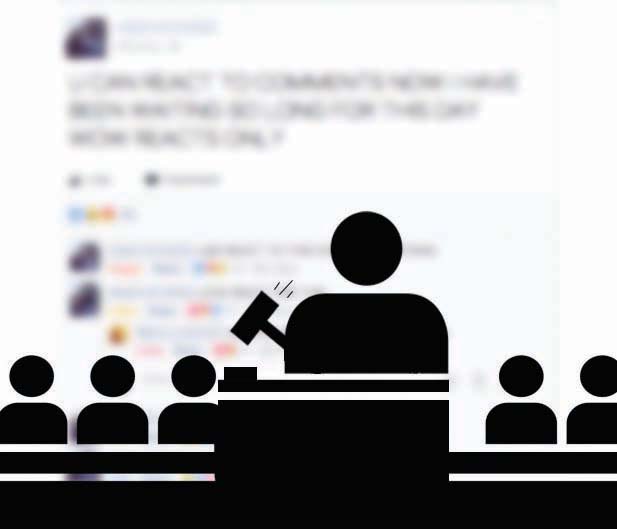Cancel Culture has been one of the terms most often evoked in public discourse for some years now. Originally describing a new social media trend of exposing and opposing injustice, for many it has become injustice itself, as a power that can indistinguishably attack the guilty and the innocent. And the most recent inflation of the term’s use is not of an innocent nature either: the political right seems to be capitalizing on it, misusing it to amplify the sense of loss of culture and identity in Western societies. Since the upcoming provincial elections will strain the cohesion of our society and the maturity of our democratic culture once more, I would like to invite some further reflections on this controversial phenomenon. My conclusions will be less about the outcome than about procedure.
My research for the present article resulted in a couple of surprises. To start with, as a non-social-media user, I was unaware of the fact that the notion of ‘cancelling’ was first used among equity-seeking minorities some eight years ago and that it was celebrated as empowerment of the underprivileged.
The second surprise pertained to the fact that the most thoughtful critics of this phenomenon are prominent people from the left spectrum, such as Barack Obama, who cautions us that no one is great in all respects, and Pope Francis, who warns against eliminating freedom of expression through intimidation.
The Canadian experience may not be as bad, but from my own classroom experience I know how difficult it is to engage students in speaking openly of any important matter. Most of them are confused by a professor actively encouraging diverse views on principles and values that they have learned others had already decided on. Apparently, our education system does not deliver what it intends or pretends: educating our youth to become a critical, inclusive and empowered next generation of citizens; instead, the majority is led to disengage from politics. This, I regard as the real threat to our democratic freedom.
I was not, however, surprised how right-wing people instrumentalize the notion of Cancel Culture, making it a key argument for what they present as the aggressive and destructive agenda of the left. The catchiness and vagueness of the term come to their aid. No matter if protests arise from covering up the crimes of white supremacists, from belittling the suffering of minorities or from frustration about temporary measures to keep people safe during the pandemic: cancel culture is a highly effective tool to increase dissatisfaction about unwanted change and perceived loss, which is blamed on the ‘left mob’ or their ‘elitist advocates’.
Most vocal in this regard has been Donald Trump, himself known for bullying and stigmatizing his opponents on Twitter, and now the founder of a new platform (ironically) called Truth Social. Even before the gross inflation of cancel culture during the pandemic, Fox News employed the term significantly more often than its competitors. Let me share yet another surprise with you. I found that the verbs ‘to cancel’ and ‘to call out’ were and still are used synonymously especially among the youth. I lament this (even if it may make my teenage daughter roll her eyes, again). But the conflation of the two verbs unduly surmises that there is no difference between ‘calling out’—that is, exposing and accusing—on the one hand, and ‘cancelling’ that is ending someone’s (or something’s) status or position—on the other.
Yet, depending on who puts forward accusations, on how many amplify them and on how sustained the grievances are, we may see very different reactions, ranging from silence over counterattack to apology, resignation and even legal investigation. ‘Calling out’ and ‘cancelling’ are obviously interrelated, but not the same thing.
Activists defending ‘shitstorms’ as a democratic power of the underdogs may emphasize that it should not matter who voices the complaint, and I agree. Tyrannical regimes, of which there are too many to list these days, typically start by taking away this freedom of expression from the people.
As a result, this should not be the approach of a self-confident democracy. But to really take away the ammunition of the self-declared defenders of whatever culture, we must do more. First, let us reflect on our relation to change, no matter whether we consider ourselves more progressive or more conservative: should we not all agree that whatever is fair and useful should be preserved and whatever is unfair and harmful needs change?
Is considering the facts and seeking a balance among diverging interests not helpful for overcoming excessive partisanship?
Second, we must hold our decision-makers to higher standards, whether they are individuals or institutions. The first rule here is a simple one and ingrained in a principle of Roman Law: ‘audiatur et altera pars’—‘let the other side be heard as well’. A fair hearing is something each of us would expect. While it might not find room in a spontaneous emotional outcry among the masses, it must be granted before a just and sustained judgment can be passed, that is before a TV show is discontinued, a journalist reprimanded, a statue demolished, or a school renamed.
Third, it matters a lot if the choice of cancellation results from—or at least stands at the beginning of—a humble learning process, rather than being just a concession to public pressure or out of fear of losing votes or money.
Change that lacks balance, transparency or a democratic process can be destabilizing and cause further division, whereas change that results from fair, honest and inclusive consultation can help a community grow. The outcome itself is often less important than the process, for this may reveal more than the outcome itself about who belongs and who is ‘cancelled’.

